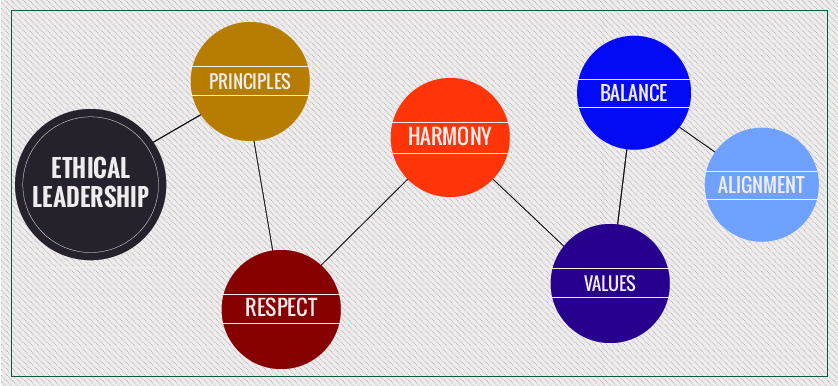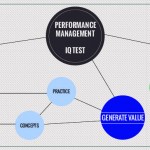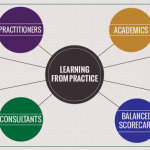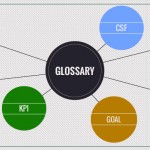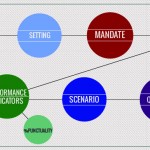Ethical leadership and performance management
smartKPIs.com Performance Architect update 30/2010
Managing performance is about achieving desired outcomes, fulfilling the purpose of an entity. Oftentimes it is a complex journey requiring a diverse set of abilities. One of the most important prerequisites of organizational success is strong, committed leadership. And even more important is being guided by ethical leaders. What is an ethical leader though?
Leadership is the ability to mobilise a group and guide them towards the achievement of a shared purpose. Ideally this would be a positive purpose, contributing to the betterment of both the group and humanity in general. However, there are many instances when the outcomes of leader’s actions were negative for both the group lead and the society overall. Even when the purpose followed is positive in nature, the means to achieving it are sometimes in contradiction with the values of the group or the leader, affecting them negatively or even outweighing the value added by the achieved outcomes.
An ethical leader is a leader that is not only driven by the achievement of positive outcomes, but also is employing a set of positive means to achieve them, striving to achieve a balance between the interests of the group lead, the personal interest of the leader and the one of society in general.
Leadership starts with a destination, a desired state in the future that the leader believes in and strives to achieve. To an ethical leader this vision of the future should reflect a wide panorama of images, that reflect not only the state of the group being lead, but also of the various entities that may be affected by the achievement of this vision. If for example the leader of a mining company is interested in expanding the operations by starting a new exploitation, in evaluating the merits of such an enterprise, he should consider not only the potential revenue generated for shareholders, but also the impact of the exploitation on the local community, the habitat, employees and the humanity overall. Such a calibration would ensure that one of the fundamental ethical principles: “the greatest good for the greatest number of people” is followed.
Establishing a destination that is in harmony with the interests of the variety of parties affected by it is an initial step. An ethical leader would follow it by ensuring that the journey towards this destination is completed by following the same principles. It is important not only to reach the destination, but also to get there by following ethical principles and ensuring a rewarding journey. In an organisational context this rewarding journey means, ensuring the members of the organisation not only contribute to the achievement of a shared purpose, but in doing this they grow professionally, learn, feel a certain degree of fulfillment, as they realize that their efforts have meaning and are in line with their values. Showing a genuine interest in all these aspects of the journey and finding a balance between them and the achievement of the purpose is not easy. Leaders face pressure from a number of directions and in dealing with these they have to make difficult decision. This decision making process is a key aspect of what differentiates a leader form an ethical leader. In this process an ethical leader respects not only his values, but also the ones of the parties affected by the decision, and seeks to protect the interests of all parties following utilitarian ethical principles.
A key characteristic of an ethical leader is the set of values that inform his actions. Having a deep respect of nature and its diversity is to me one the most important. Many of the challenges Planet Earth faces today are generated by the humanity. Greed, cruelty, pride, anger and disrespect are all contributing to them. An ethical leader is the one that is not only uncharacterised by them, but actively seeks to eliminate such behavior both within the group lead and in society in general.
Certainly this is a big ask, especially in the business world. This is why perhaps ethical leaders are difficult to find. Nurturing them is challenging in today’s world, however there is hope for the future, especially with a renewed interest in systems thinking that is complementing more and more the command and control thinking that dominated administrative science for centuries.
Another characteristic of ethical leaders is continuity and consistency in living their own values and of the group they guide. Aligning their actions across a variety of roles is important. Such roles cut across various facets of the life: parent, partner, worker, community member and citizen among others. Ethical leaders align their actions across all these roles so that they are guided by similar principles. They might not be leaders in all of these roles, however their behavior should reflect that they know not only to lead, but also to follow, that they are genuine not only at work, but also at home and in the community.
Clarifying what is not an ethical leader would also help in understanding the term better. Is a leader of an organisation that behaves unethically in a business context, achieves great success while doing this and makes large contribution for humanitarian purposes with the revenue generated an ethical leader? What about a leader whose success in an organisational setting is opposed by an unhappy, broken family, disrespect for the community and for nature in general? Sometimes it is difficult to draw a line. Still, the use of the term “ethical leader” should be selective enough to reflect the true essence of humanistic, leaders dedicated to the good of the society and nature overall.
Perhaps the simplest answer to the question is formed of three words: a good person.
Stay smart! Enjoy smartKPIs.com!
Aurel Brudan
Performance Architect
Walker, Rob 1992, “Rank Xerox – Management Revolution”, Long Range Planning, Vol. 25, No. 1, pp. 9 to 21

Tags: Aurel Brudan, Leadership, Performance Architect Update
